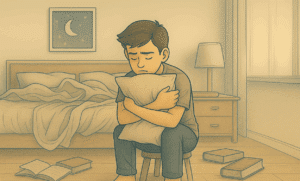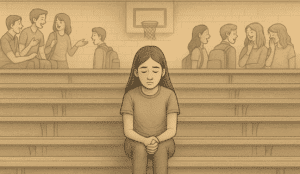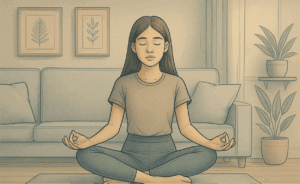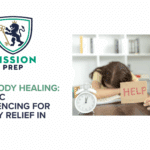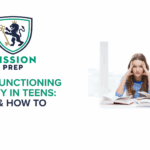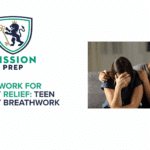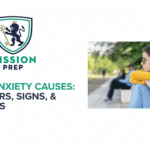Key Takeaways
- Anxiety in teen girls often manifests through physical symptoms such as headaches and stomachaches.
- Emotional responses like excessive worry and irritability are common indicators of anxiety.
- Behavioral changes, including avoidance of social situations and decreased academic performance, are also significant signs.
- Recognizing these symptoms early can lead to more effective interventions and support.
- Mission Prep’s personalized treatment approach focuses on creating sustainable habits and teaching practical self-regulation skills that empower teens to manage their anxiety effectively beyond treatment.
Recognizing Common Anxiety Symptoms In Teen Girls
Teen girls often face a unique set of challenges that can trigger anxiety; the amount of stress they experience at their age can be overwhelming. Understanding the signs of anxiety is the first step in providing the necessary support.
Understanding Anxiety in Teen Girls
Anxiety symptoms manifest in various ways, but they should not be mistaken for typical teenage behavior; they are indicators that something deeper might be happening. Recognizing them early can make a significant difference in how effectively we can help.
Besides that, understand that these symptoms can vary widely from one individual to another. What might be a clear sign of anxiety in one girl could be different in another. Therefore, a personalized approach is vital.
| Mission Prep: Adolescent Mental Health Care Mission Prep specializes in mental health treatment for teens aged 12-17, offering residential and outpatient programs for anxiety, depression, trauma, and mood disorders. Our therapies include CBT, DBT, EMDR, and TMS, tailored to each adolescent’s needs. With a structured, supportive environment, we integrate academic support and family involvement to promote lasting recovery. Our goal is to help teens build resilience and regain confidence in their future. Start your recovery journey with Mission Prep today! |
Top 8 Anxiety Symptoms in Teen Girls
1. Excessive Worry
Excessive worry often revolves around everyday situations and can become overwhelming.
This worry can lead to a cycle where the anxiety feeds on itself, making it harder for the individual to break free from the anxious thoughts.
Having an open line of communication and discussing your fears with others can help with managing worries.
2. Irritability
Irritability can often accompany anxiety, making it challenging for you to manage your emotions effectively.
This irritability might be directed at friends, family, or even yourself, leading to further emotional distress. Understanding and addressing irritability can lead to better feelings and less friction with those close to you.
3. Concentration Issues
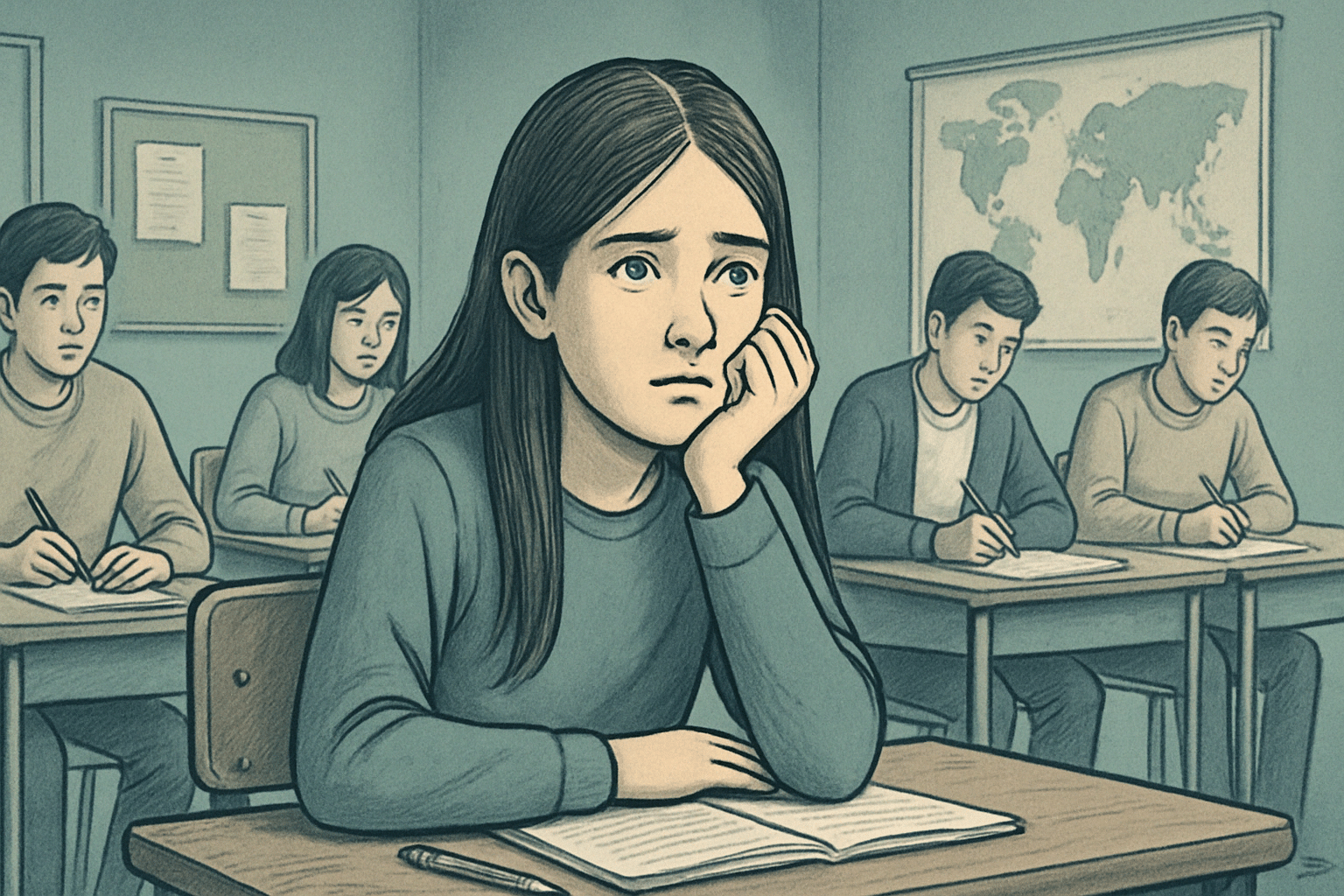
Concentration issues are a common symptom of anxiety in teen girls.
Concentration difficulties often arise because anxiety consumes much of your mental energy, leaving little room for focus on tasks at hand. Whether it’s schoolwork, hobbies, or even conversations, staying on track becomes a significant challenge.
Using structured routines and minimizing distractions can help manage these concentration problems. Techniques such as setting specific times for study and breaks can create a more focused environment. Additionally, mindfulness practices can train your mind to maintain attention and reduce anxiety-driven distractions.
4. Restlessness
If you’re feeling restless, you may feel a constant need to move or an inability to relax. This can be exhausting both mentally and physically, leading to further stress and discomfort.
Physical activities such as yoga or dance can be effective in channeling this restless energy into something positive. These activities help reduce restlessness, make you more relaxed, and clear your mind.
5. Muscle Tension
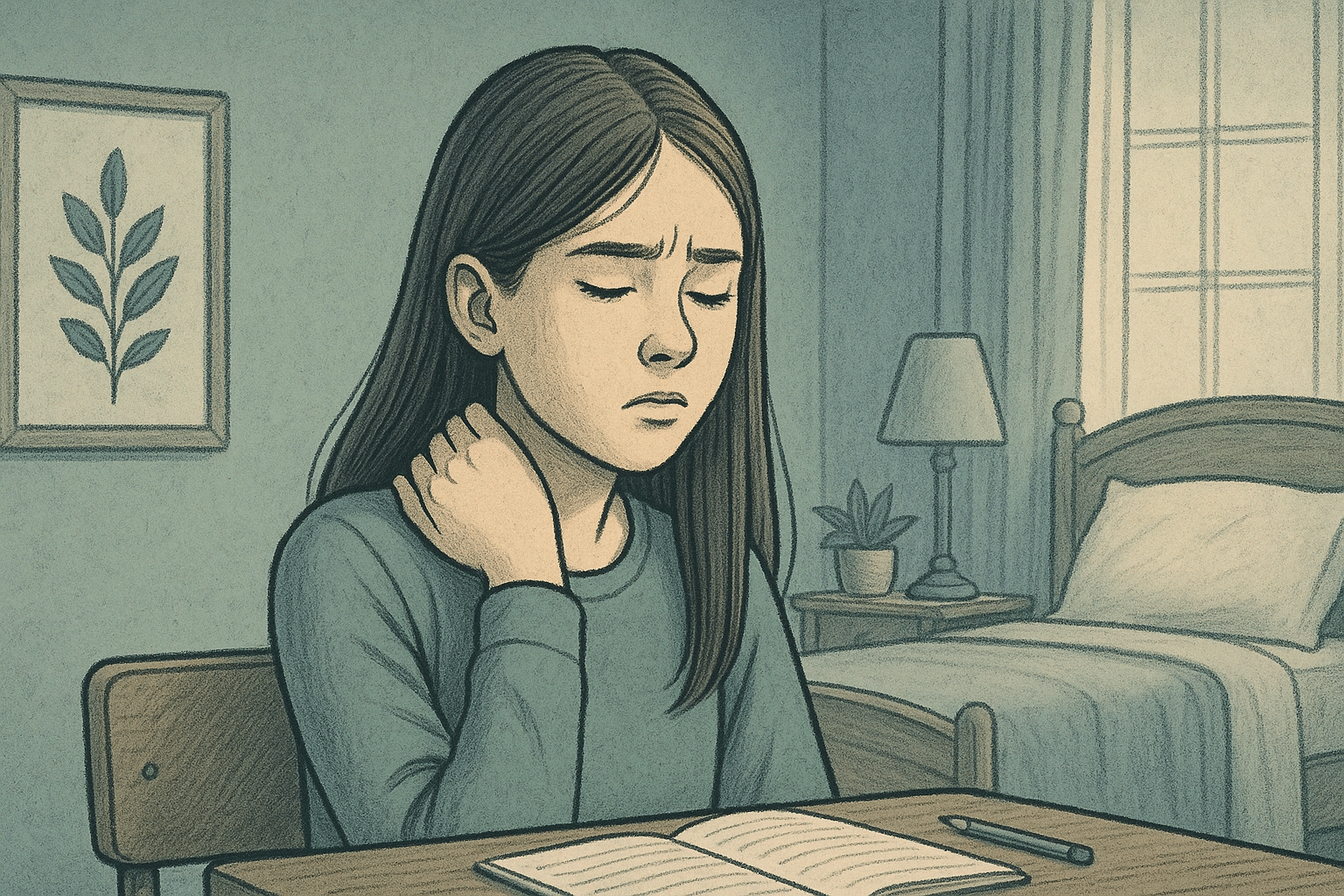
Muscle tension often accompanies anxiety, causing discomfort and sometimes pain.
If you’re feeling anxious, you might feel muscles tense up in your neck, shoulders, and back. Regular stretching exercises and relaxation techniques like progressive muscle relaxation can alleviate muscle tension. Engaging in regular physical activity can also help reduce overall tension and improve your well-being.
6. Social Withdrawal
You might start avoiding social interactions, even with close friends and family, due to overwhelming anxiety or a fear of judgment.
This withdrawal can lead to feelings of isolation and loneliness. Creating a supportive environment where you feel safe to express yourself without fear of criticism can help you feel more connected and less isolated.
7. Physical Complaints
Physical complaints such as frequent headaches, stomachaches, or other unexplained aches are common among anxious teens. These symptoms are real and can cause further distress about your health.
Having a healthy lifestyle, including proper nutrition, hydration, and regular sleep, can help alleviate physical symptoms.
8. Catastrophic Thinking
Catastrophic thinking is imagining the worst possible outcomes in situations. This type of thinking can be debilitating and prevent you from taking risks or trying new things.
Focusing on the present moment and practicing gratitude can shift your mindset away from catastrophic thinking. Cognitive-behavioral techniques can be effective in reframing negative thoughts and promoting more realistic and positive thinking patterns.
Impacts on Daily Life
Academic Performance
Anxiety can interfere with your ability to concentrate, retain information, and perform well in school. This can lead to a cycle of stress and anxiety about academic performance that further impacts your mental health.
Social Interactions
Social interactions are often challenging for anxious teens. Anxiety can affect your ability to form and maintain friendships, which ultimately affects your overall well-being.
Creating a supportive environment where you feel accepted and valued can promote healthier social interactions.
Physical Health
Anxiety can take a toll on physical health and lead to issues such as fatigue, muscle tension, and frequent illnesses. These physical symptoms can impact your mental health by creating a cycle of stress and anxiety.
Promoting a healthy lifestyle, including regular exercise, proper nutrition, and adequate sleep, can help improve physical health and reduce anxiety symptoms. Encouraging regular medical check-ups can also ensure that any physical health concerns are addressed promptly.
Coping Strategies
Professional Help
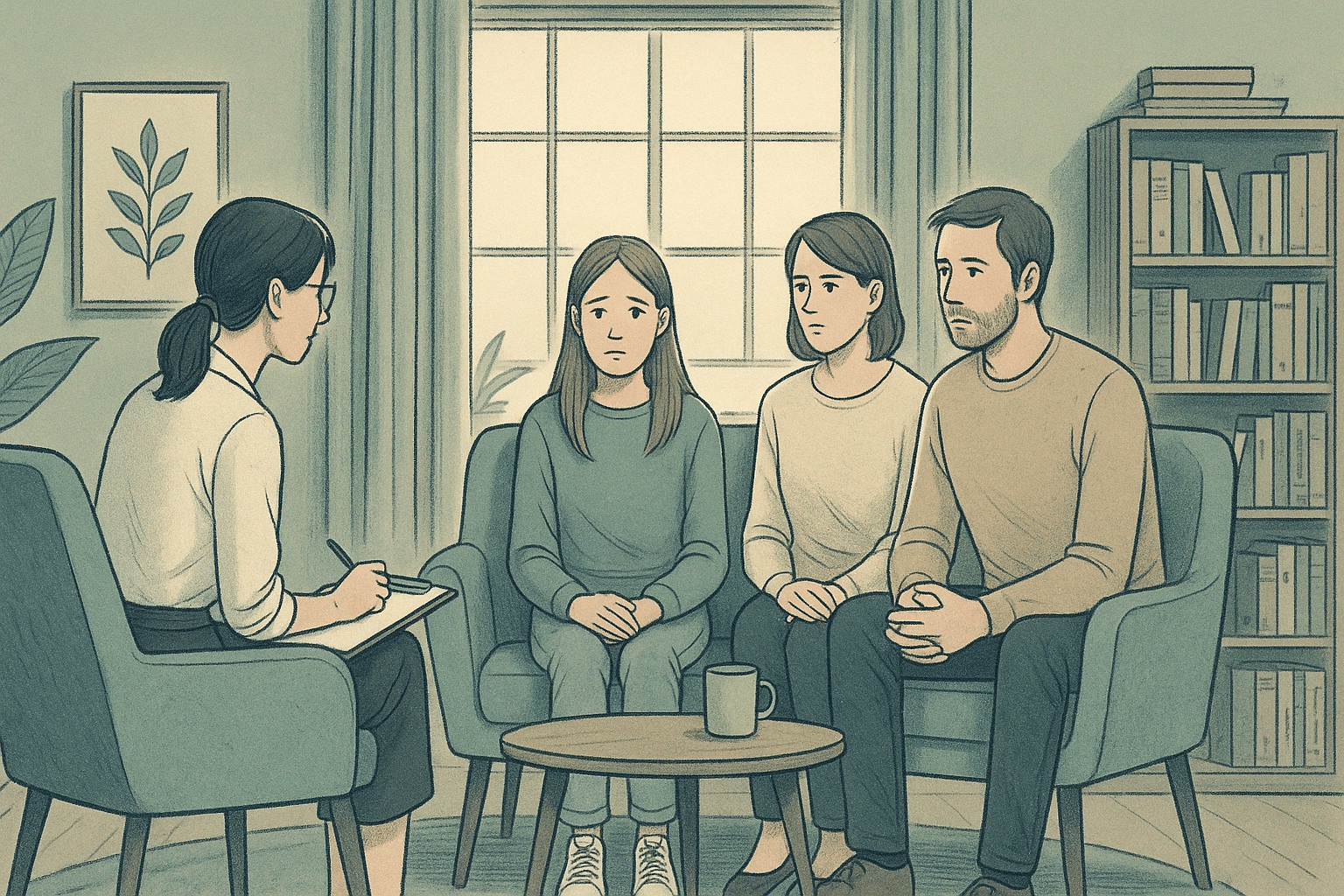
Seeking professional help is a crucial step in managing anxiety in teen girls.
Therapists and counselors can offer specialized support and guidance to help teens develop coping skills and strategies and manage their anxiety effectively. These professionals can provide a safe space for teens to express their feelings and work through their challenges.
Therapists often use techniques such as Cognitive Behavioral Therapy (CBT), which is effective in helping you reframe negative thought patterns and reduce anxiety symptoms. Additionally, family therapy involves parents and siblings to create a supportive environment for you.
Mindfulness Practices
Mindfulness practices focus on being present in the moment, which can reduce stress and anxiety by shifting focus away from worries about the past or future.
Several mindfulness techniques can be beneficial for teen girls:
- Deep breathing exercises: These can help calm the mind and reduce physical symptoms of anxiety.
- Guided meditation: This practice encourages relaxation and a sense of peace.
- Journaling: Writing down your thoughts and feelings can help you process your emotions and gain clarity.
Peer Support
Friends and peers who understand and empathize with your experiences can provide comfort and encouragement so that you feel less isolated.
Participation in support groups or clubs can help you connect with others who share similar experiences. These connections can foster a sense of belonging and provide a safe space for you to share your feelings and challenges.
Mission Prep: Transforming Teen Anxiety into Empowerment
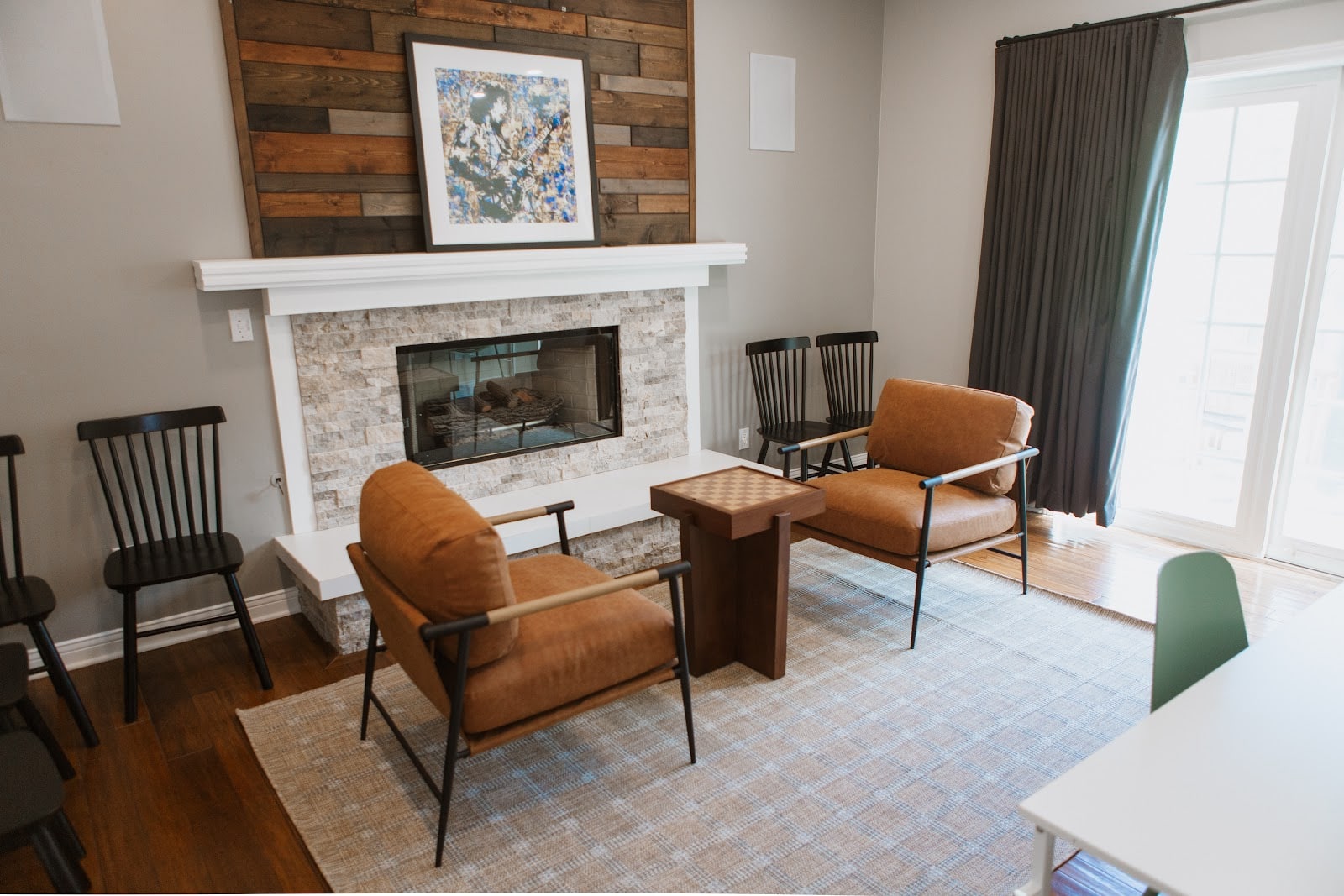
We help you address anxiety through our biopsychosocial approach and therapeutic environment.
Mission Prep’s residential treatment program addresses the full spectrum of anxiety symptoms through our unique biopsychosocial approach, targeting everything from physical complaints to catastrophic thinking patterns.
What sets our treatment apart is our commitment to lasting change. We don’t simply manage symptoms—we equip you with sustainable self-regulation tools customized to your individual triggers and needs. Our therapeutic environment removes overwhelming stressors while teaching practical coping strategies through evidence-based therapies, including CBT, DBT, and somatic experiencing.
Teens thrive in our modern, welcoming facilities in California and Virginia, where they can connect with peers facing similar challenges and work with specialists who understand the unique pressures facing them. This combination of professional support, structured routine, and personalized intervention creates the foundation for sustainable healing.
You deserve more than temporary relief—you deserve the skills to manage life’s challenges with confidence. Contact our admissions team today to learn how Mission Prep can help you reclaim your potential and build a future beyond anxiety.
Frequently Asked Questions
What causes anxiety in teen girls?
Anxiety in teen girls can be caused by a variety of factors, including genetic predisposition, hormonal changes, and external stressors such as academic pressure or social dynamics. Each individual’s experience is unique, and multiple factors may contribute to their anxiety.
How can I help a teen girl with anxiety?
Providing a supportive environment where the teen feels safe to express their feelings is crucial. Encourage open communication,listen without judgment, offer reassurance, and help them develop healthy coping strategies. Seeking professional help can also provide specialized support.
What lifestyle changes can reduce anxiety?
Regular physical activity, a balanced diet, adequate sleep, and mindfulness practices can all help with anxiety. Encouraging these healthy habits can promote overall well-being and alleviate any anxiety symptoms.
Are there medical treatments for teen anxiety?
Yes, there are medical treatments available for teen anxiety, namely therapy and medication. Consult with a healthcare professional to determine the most appropriate treatment plan for your teen’s needs.
How does Mission Prep diagnose and assess anxiety in teens?
At Mission Prep, we conduct a thorough assessment by using the biopsychosocial model. This comprehensive approach includes a full psychological evaluation, regular outcome measurements, structured tools to assess anxiety, and detailed historical accounts from both the client and their family members.
We use this assessment to create a personalized treatment approach for each teen.



